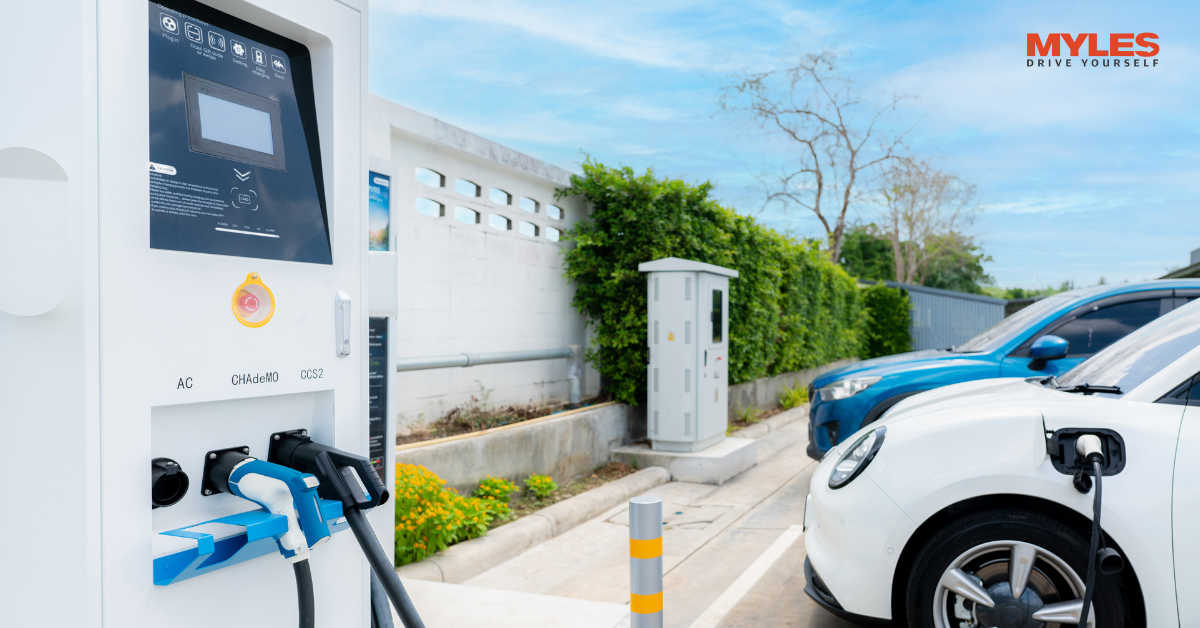With India’s growing population, there is a significant change in its Automotive industry from its cutting-edge technology to its design and affordability. Over the past decade, we have seen exceptional models of different cars from different brands capturing a commendable consumer market and surviving in such a competitive market, these changes have done good to people’s comfort and the respective car brands but not to the environment. India has seen a constant rise in EV projection since 2021 and the upward trajectory continues up to 2023 as well.
The increased number of vehicles running on fuel has led to an air which has become harmful for us and also for future generations as well. To combat this situation, the concept of Electric Vehicles (EVs) has emerged where vehicles are run on electric power instead of inside combustion of some fuel gases.
The concept of Electric Vehicles seems to be promising with its “eco-friendly” concept towards the environment as well as humans. Now here are several aspects of Electric cars that will help them to become household names in the coming years.
1. Government Initiatives
Indian Government has been actively promoting the maximum usage of Electronic Vehicles through various incentives like subsidies, Policy frameworks, etc, to encourage easy and carbon-free mobility everywhere and anywhere.
One such Government scheme is FAME (Faster Adoption and Manufacturing of Hybrid and Electric Vehicles), a government incentive program, that provides financial incentives for the purchase of electric vehicles and the development of charging infrastructure.
The revised FAME II scheme offers 50% more subsidy at ₹15,000 per kWh on electric bikes and scooters in India. The government originally introduced the FAME II scheme in 2019. The new FAME II subsidy aims to encourage faster adoption and manufacturing of electric vehicles in India.
2. Affordability & Technical Advancements
With advancements in high-class technology and new-age techniques, it has become easier to make better Electric Vehicles with proper functioning and pricing. Surprisingly, the fuel price of EVs can be as low as only 1.1Rs/ km. As a result, the overall cost of about Rs 20,000 is reduced, making it affordable to the masses while traveling every 5000 km by an EV. Also, it will reduce vehicular emissions, which otherwise creates a 3% GDP loss every year.
3. Automaker Investments
Indian and global automakers are actively investing in electric vehicle (EV) development, underscoring a commitment to sustainable transportation. This surge in investment demonstrates a collective industry push toward cleaner mobility solutions. As the automotive landscape evolves, these investments signal a pivotal moment in transitioning to electric vehicles, aligning with global efforts to reduce emissions and promote environmental sustainability.
4. Charging Infrastructure
Crucial for widespread electric vehicle adoption, India is actively addressing the need for an expanded charging infrastructure. Ongoing initiatives are focused on significantly increasing the number of charging stations nationwide. Also, NITI Ayog has published certain guidelines and specifications for setting up charging points.
5. Public Awareness and Acceptance
The idea of Electric Vehicles will become a wave only when it is accepted by the masses, also spreading awareness about the importance and usage of Electric Vehicles is the foundation of public acceptance.
However, there has been a growing awareness among the public about the benefits of electric vehicles, including lower operating costs, reduced environmental impact, and government incentives.
Electric Vehicles are a boon of technology for us which contributes to environmental sustainability by reducing air pollution and greenhouse gas emissions. Myles aligns with India’s commitment to a cleaner, greener, and sustainable transportation future by providing EV car models of every brand, be it Maruti or Mercedes. You can drive and experience different EV models for the best driving experience with its subscription models.


